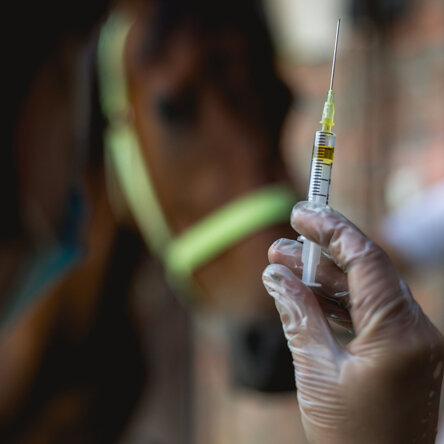Franklin Vets
Franklin Vets - excellence in veterinary care for dairy, farming, lifestyle, equine and household pets. BESTPRACTICE ACCREDITED NZ.
Your account is powered by Storbie. To edit your profile visit my.storbie.com
Your account is powered by Storbie. To edit your profile visit my.storbie.com

Tetanus is a disease caused by the spores of the bacteria Clostridium tetani, which is a common inhabitant of the intestinal tract of animals and is found in soil and droppings.
The bacterium can survive as spores in the environment for long periods, and while it is in the soil, it is harmless. However, the bacteria can enter the body through wounds, particularly puncture wounds, and exposed tissues such as the umbilicus of foals and the reproductive tract of post-foaling mares (especially in the event of traumatic foaling or retained placenta).
Clostridium tetani is an anaerobic organism, meaning it thrives in low oxygen conditions – such as found in deep puncture wounds or where there has been damage to the blood supply to tissues. However, tetanus can result from any break in the skin that allows the spores to enter the body. In the right conditions the bacteria are activated, multiply, and release neurotoxins which travel via nerves or the bloodstream to the brain and spinal cord, where they interfere with certain neurotransmitters resulting in painful muscle contraction and spasms. Horses are the most susceptible of all domestic animals to tetanus toxins.
As the disease progresses the horse experiences a lot of pain, will be sensitive to light and noises, and will have difficulty chewing, swallowing, and moving. The horse will become recumbent, and death occurs when paralysis of the respiratory muscles prevents breathing.
Unfortunately, 80% of horses that contract tetanus will die. Early diagnosis and treatment are critical but there is no specific cure. Treatment is aimed at killing the bacteria, neutralising the toxins before they bind to the nerves, and supportive care to reduce the severity of the signs while the disease runs its course (this may be days to weeks)
Thankfully tetanus can be avoided with vaccination.
Horses can be vaccinated from 3 months of age. A primary course consists of two vaccinations 4 weeks apart, then yearly boosters.
Mares should have a booster 4-6 weeks before foaling to give foals early immunity via the colostrum.
Dr Catherine Pemberton, Equine Vet at Pukekohe
Franklin Vets - excellence in veterinary care for dairy, farming, lifestyle, equine and household pets. BESTPRACTICE ACCREDITED NZ.



